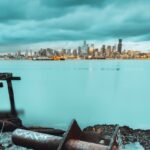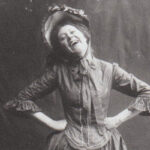Dear Vote, or Why This Election Day I’m Coming Out of the Boiler Room
Monica Youn on Doing the Important Work of Voter Protection
Dear Vote,
I’ve spent years of my life thinking about you, I’ve written your name millions of times. But this is the first time I’ve addressed you directly.
Tonight, the red V of your name was writ large on the wall behind the head of the preternaturally calm woman leading Pennsylvania poll observer training. In the Zoom square, the upward diagonals of the letter formed red horns bursting from her temples, as she explained what to do if gun-toting Proud Boy wannabes enter the polling station. (Upshot: flee, then call the incident into the campaign from a safe location). Friends hearing that I’m volunteering as a poll observer in Philly have encouraged me to buy some pepper spray. Honestly, I doubt I’ll witness anything at all, much less anything threatening. I’m bringing a folding chair and the new Elena Ferrante instead.
I’ve worked in voter protection in every presidential election and most midterms since 2004. Usually what I do is called “boiler room”—I’m in a roomful of election lawyers either at the campaign office or, if I’m taking the nonprofit route, supervising volunteers at some midtown law firm. We drink a lot of cold terrible coffee, eat a lot of cold terrible food, listen to a lot of cold terrible hold music from the Board of Elections phone lines.
Every election it goes like this. Just after dawn there will be a slew of panicked reports that polling places are still padlocked and dark, that ballots have failed to arrive, that the poll workers can’t figure out how to get the machines operational. Around 8 am, we start hearing the complaints that always hit me the hardest: “I’ve been in line for three hours but I have to get to work now”; “I’ll lose my job if I’m late”; “I have to get home—there’s no one who can watch my kids”; “I can’t come back, my shift doesn’t end until after the polls close here.” Each volunteer frantically improvises, trying to scrounge up transportation options, childcare options, offering to intercede with the voter’s boss, anything to help, before finally subsiding into guilt-ridden powerlessness.
Later we fall into a steady rhythm of the “normal” complaints—touchscreens freezing or glitching, poll locations running out of ballots, poll workers instructing people to vote by provisional rather than regular ballot, registered voters failing to appear on the voter rolls (on one memorable occasion, this seems to have happened because a poll worker had accidentally photocopied only one side of a double-sided poll book). And always always always the endless stream of registration issues—“I sent in my registration months ago, but it still isn’t showing up,” “I’ve been registered for decades, but I must have been purged,” “I didn’t reregister after moving.” And always students wailing, “But I didn’t know I had to register. Isn’t there some way I can vote?”
In my thoughts I flashed forward to 2020, to swaggering, gun-toting bullies patrolling outside every polling place.And scurrying around, putting out little fires, I struggle to maintain focus against my own inner whispers of outrage—Why does it have to be this hard? Why are the barriers to voting the highest for those for whom life is already the hardest? Why does the US make it harder to vote than any other industrialized nation? Questions to which I already know the answer. We all know the answer.
And I find myself donning the same game face as the voter protection trainer this evening, the face that projects: “Outrage is for amateurs. The time for outrage is always yesterday or tomorrow, never today, and especially never Election Day.” I find myself reciting—even through my own gritted teeth—the election lawyer’s mantra, Hanlon’s razor: “Never ascribe to malice that which is adequately explained by incompetence.”
But of course the causal link between malice and incompetence is all too easy to trace—where election systems are chronically underfunded and understaffed, poll workers undertrained and underpaid, requirements and deadlines unreasonably burdensome, then the endless flow of voting obstacles, errors, and debacles are no longer an unintended consequence, but part and parcel of an intentional strategy to suppress the vote. Structural voter suppression is one of the key pillars of structural racism, so deeply embedded in US elections that it can’t be attributed to one single set of bad intentions, but to geological strata of white supremacy dating back to the founding of this nation.
There are the obvious malicious examples of voter suppression—war stories of which every veteran boiler room lawyer has a store. My personal collection includes: The letters on forged Board of Elections letterhead instructing voters in Black neighborhoods to report to a fictional polling place rather than their actual one. The deputy sheriff setting up a roadblock on the only road to a polling place and stopping every car. The signs posted in rural communities saying that Election Day for Democratic voters was on a different date, the day after the actual election. The vigilante squad photographing every voter in line “so they could check with the police for criminal offenders.” The hundreds of thousands of robocalls that simultaneously overloaded our voter assistance hotline at 4:30 am on Election Day, putting it out of commission.
But these obvious, and patently illegal, “bad apples” are (to belabor this metaphor) the proverbial low-hanging fruit of efforts to protect the vote. They are relatively easily squashed. Patching the leaks in the whole rickety apparatus is the harder part—and the devil’s bargain of election protection work is that you’ve agreed to use only the master’s tools within the master’s house. At the front lines of voter protection, a soldier is often armed with just a statutory handbook, a cellphone, and a polling place locator. And until recently for me, those flimsy weapons seemed, if not exactly adequate, at least somewhat helpful.
Then the moment my confidence disintegrated. It was about 6 pm on Election Day 2016. I had been in the boiler room since 5:30 that morning, helping supervise about 50 volunteer lawyers—together with multiple similar boiler rooms, our hotline had fielded over 300,000 calls that day, and all of us were drooping, running on fumes. Then a call came in—“There’s been a shooting at a polling place outside of Los Angeles.” My desk faced the rows of lawyers, so I could vividly see faces abruptly crumple, see tears start down the faces of volunteers still on the phone with voters, still trying to make each vote count while trying not to cry audibly. I remember slumping, head in my hands, the words GAME OVER flashing red in all-caps across my consciousness.
Someone projected the news feed up on the big screen—an active shooter in a Latinx district, one dead, two wounded, two polling places on lockdown. The helplessness—all this effort, all these good intentions—all shut down by one bad man with a gun. The knowledge that this could herald the start of a new era, a post-democracy era where armed vigilantes intimidate the rest of us out of our efforts at self-governance. In my thoughts I flashed forward to 2020, to swaggering, gun-toting bullies patrolling outside every polling place, supposedly to keep “illegals” or “felons” from voting, supposedly to keep “voter fraud” or “ballot stuffing” from going on, but in reality, of course, to make America white again.
As it eventually turned out, that 2016 shooter was probably a false alarm, there probably wasn’t a direct election link, although one of the women shot was on her way to vote. But since that night, there’s been an ever-present hum of fear in the back of my consciousness—my sense that the ramshackle shambles of the election system is so brittle, can so easily be toppled by a tiny but well-armed faction of assholes. There’s no do-over for an election, no way to count a lost vote, no remedy for a voter who stays home out of even a well-founded fear of death by virus or death by AR-15 or death in custody.
People don’t volunteer for election protection unless they have an overdeveloped savior complex in the first place.And over the past weeks, that hum has ramped up to a shriek, punctuated by the steady drumbeat of headlines: RNC recruits an “army” (their word, not mine) of 50,000 poll watchers, Trump says “Bad Things Happen in Philadelphia” after dog whistling white supremacists at the first debate; GOP kicked out of early voting sites in Philly; Armed Trump supporters stage “rallies” at early voting sites. A federal consent decree in place since 1982 kept RNC poll watchers out of polling places for decades after armed members of a so-called “Ballot Security Task Force” harassed and intimidated Black and Latinx New Jersey voters. That consent decree was allowed to expire in 2018, and the RNC has been quick to seize the opportunity.
People don’t volunteer for election protection unless they have an overdeveloped savior complex in the first place, and every electoral adrenal gland in my body is flooding my nervous system with the message, “Get thee to a polling place!”
There’s a sense that the Eye of Sauron has swiveled toward Philly. I’m doubtful that there will be widespread violence there during my daytime shift, but Election Night, all bets are off. We don’t expect absentee votes to be tallied in Pennsylvania possibly for days post-election. I think the daytime voter suppression in Philly will be the legal kind—long lines, lawsuits, some sporadic polling place Trump rallies or voter challenges. I’m much more worried about daytime violence in Arizona, and Georgia, and Florida, and Texas—places without Democratic mayors, places with large Latinx populations. And, along with the rest of America, starting at sundown on Election Day, I’m worried about armed mobs, about democratic breakdown, about civil war. Of course, now I’m also worried about posting predictions online in advance of the election.
But for now, I’m mostly checking Dark Sky to see whether I should pack an umbrella in my Election Day backpack, calculating how many Kind bars I expect to consume during my shift. I’m hoping that if enough of us defenseless but excruciatingly earnest folks visibly turn out, it will be some deterrent against overt violence.
Dozing in my folding chair, sporting my lanyard and my paperback and my water bottle, I feel like I’ll be dressed for Halloween as you, dear vote. Because this is how I picture you—not in the bold all-caps font beloved of mask-designers and fundraising spammers, but in lower case—a noun rather than a verb, an object contingent and eradicable as a pencil mark, and (like our democracy) forever dependent on the kindness of strangers.




















